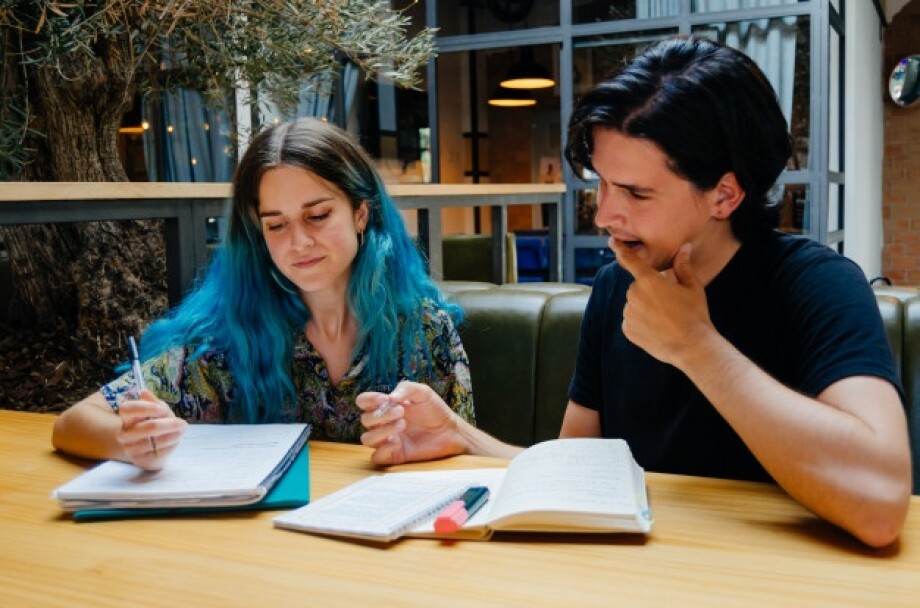Have you just moved your classes online and found out that most of habitual activities seem difficult to prepare and run? Do you get ready for each class for too long? Are you in search of some good old activities which suit all levels and require little to no preparation time? If at least one of your answers is ‘yes’, then you might find ‘Lessons from nothing’ by Bruce Marsland to be we worth reading.
It is a relatively short book which highlights practical ideas for teachers with limited access to resources or those who are working under a pressure of time. It can be useful for novice teachers because the activities mentioned there do not require any sophisticated preparation or knowledge of rare methods and approaches in ELT.
The book is organised according to the resources needed for each activity.There are the following sections there: ‘Activities using no resources’, ‘Activities using pens and paper only’, ‘Activities using blackboard, pens and paper’ and ‘Activities using other resources’. None of the activities require the use of any electronic devices — not even a photocopier, can you imagine?
Below you will find some activities taken from various sections. They are provided with the rationale and some ideas of how you can vary them.
What use is it?
Prepare a selection of objects familiar to students. They might be a corkscrew, a sieve, a metal bookmark or anything strangely shaped and with movable parts. If you teach online, find some photos of the objects. Ask the students to find as many different uses for the items as possible.
A variation of the activity might be a guessing game. Tell students that they are all aliens who have found some objects on the Earth. Provide each student with an object or a picture. After some thinking time, invite them to present their theories about the possible uses of those objects, and demonstrate what people on Earth might do with them. Other students have to guess the object described.
Not only does this activity activate creative thinking, but also can come in handy while practising modal verbs or passive voice.
Picture it
Select some words, phrases or idioms from the recently learned vocabulary. Give them to the students, either written on cards or typed privately into the Zoom chat. Ask students to represent the words in picture form without speaking or using written words. Invite the others to guess what the drawing represents.
This activity is perfect for vocabulary revision and can be done easily with the help of any online whiteboard. You may as well practise question forms or modals of deduction while guessing.
Sentence game
Write a simple sentence on the board. The focus can be any, depending on the material you are working with. ‘It’s a bag’, ‘He arrived late’ or ‘She used to wear dresses’ can be examples. One by one, students must then think of one or two word which can be added to the sentence. When the new word is added, the student who suggested it reads the new sentence aloud. The class then decides if this sentence is grammatically correct. Then another student takes their turn and extend the sentence.
‘It is Saturday.’
‘It is now Saturday.’
‘It is now Saturday night.’
‘I know it is now Saturday night.’
‘I know it is now no longer Saturday night.’
etc.
(from ‘Lessons from nothing’ by Bruce Marsland)
This one can draw students’ attention to the ways of constructing longer sentences and making their texts more interesting to hear or read. It might help your students to get rid of minimum-length sentences only in their writings, which is especially useful at exam preparation classes. Also, it’s a good way of practising proper word order.
Rephrasing
Prepare a sentence or take it from a text which the class has seen recently and dictate it to the students. Ask students to rephrase the sentence individually. Lower levels can replace just some adjectives or verbs, while higher levels cannot use any words from the original sentence at all. .The main point is to save the meaning as much as possible. When everyone is ready, the sentences are read out.
This activity is one more way of drawing learners’ attention to the necessity of using synonyms and various rephrasing techniques. It also teaches students to be more attentive to shades of meaning and connotations. It will be beneficial for any exam prep class, leaving alone boosting students’ vocabulary.
Read all about it
Take an English newspaper, or prepare a collection of articles on your current topic. The length and authenticity of the texts might vary according to the level of your students. Provide each student with an article — in case with online classes it can be forwarded by email or sent to a chat. As them to write two comprehension questions for their article. After that, collect all the questions and dictate them to the class. Then, display all the articles to everyone. Invite students to read the articles and find the answers to all the questions.
In more advanced classes and with the proper selection of texts, each learner could prepare a question on the model of ‘Do you think . . . ?’. Then, when all the answers have been checked, you can continue with a group discussion based on the issues raised.
Obviously, this activity can be best used to practise question forms. What’s more, it’s a great way to introduce your students to narrow reading and to exploit authentic texts at the lesson.
‘Lessons from Nothing’ is a wonderful book for any novice teacher to have. However, even if your teaching experience is long enough, you will probably come across a couple of activities with an unusual twist. After all, Bruce Marsland is right to say that ‘the possibilities for using language, imagination and human interaction change ‘nothing’ into a potentially limitless ‘something’.
In the next Skyteach newsletter, we’ll tell you how the principle «make it up on the go» can save any lesson (our emails are in Russian). If you haven’t subscribed yet, you can do it here.
But what if fate itself chooses the theme of the lesson for you? Which lesson topic will bring you good luck? Let the date of your birth show it… Try out our brand new topic randomizer on our social media:






 Маргарита Аветисян
Маргарита Аветисян 
 Вероника Аветисян
Вероника Аветисян 


